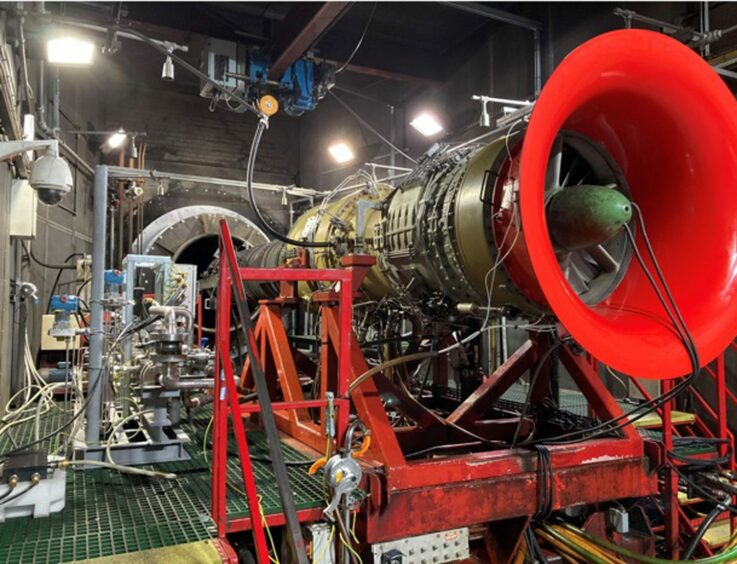
Aberdeen’s Net Zero Technology Centre and Siemens Energy have successfully demonstrated a green methanol-powered aero-derived gas turbine.
The world’s first pilot, carried out at the Aberdeen RWG facility, creates the potential to reduce up to 75% in offshore CO2 emissions.
The Net Zero Technology Centre (NZTC) claim that offshore platforms in the UK North Sea can benefit from the lowered emissions these turbines can provide “without extensive modifications.”
This project has the potential to create jobs, economic growth for Scotland and strengthen the country as a “leader” in net zero technology, the NZTC writes.
The ETF Alternative Fuel Gas Turbine project is one of seven projects being delivered through the centre’s Net Zero Technology Transition Programme (NZTTP), which was awarded £16.5 million from the Scottish Government’s Energy Transition Fund to transform the North Sea energy system.
The NZTC says this successful pilot project marks a “key milestone” in its Energy Transition Fund Alternative Fuel for Gas Turbines project.
Charlie Booth, project manager, from Net Zero Technology Centre said: “The ETF Alternative Fuels Gas Turbine project identified green methanol as a strong contender for a clean, low-carbon transition fuel for offshore power generation.
“This pilot unit takes us one step closer to proving the viability of green methanol as a fuel for aero-derived turbines to reduce offshore emissions and strengthen the UK’s position as a leader in low energy systems.”
Steve Scrimshaw, vice president, Siemens Energy UK&I added: “The North Sea presents a sea of possibilities for the energy transition.
“By modernising existing assets and testing new technologies and fuels we can transform the existing oil and gas sector whilst at the same time protecting and creating jobs.
“Building a fully renewable energy infrastructure will take time but this project shows that we can make immediate changes today that will significantly reduce emissions.”
Recommended for you

